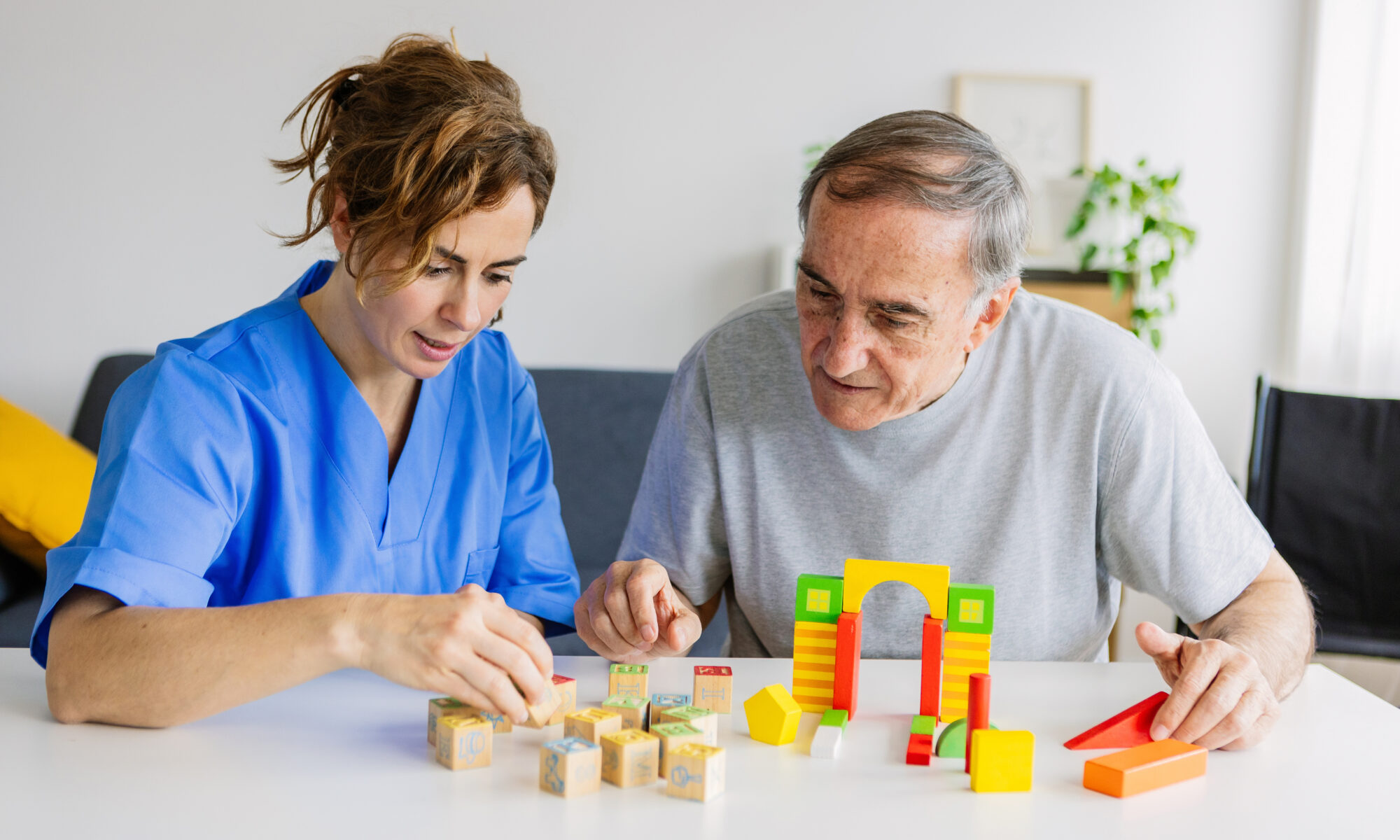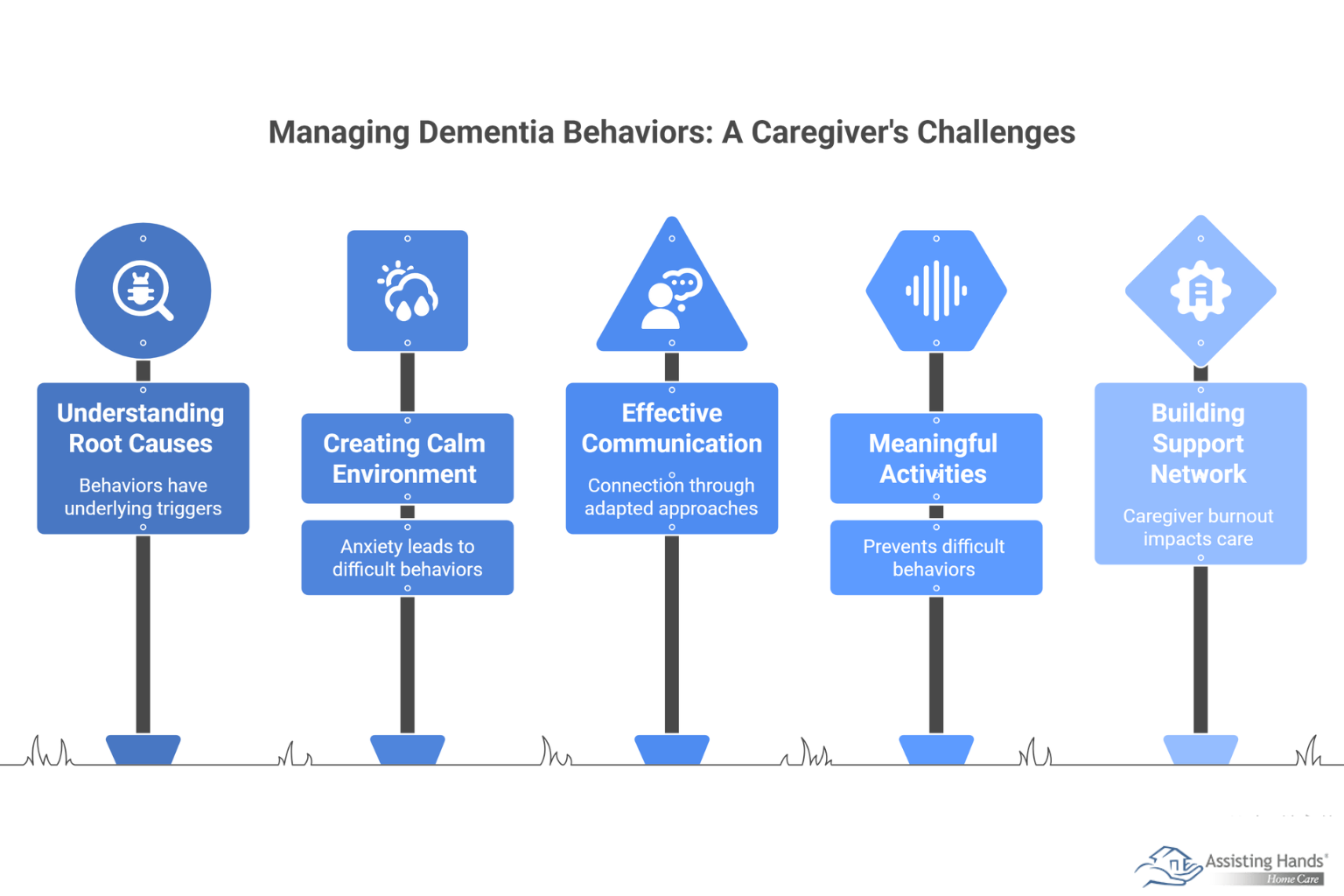
Table of Content
Caring for a senior loved one with dementia requires compassion, adaptability, and a deep understanding of how the condition affects behavior. When cognitive abilities decline, individuals may express their needs, fears, or discomfort in ways that can seem challenging or confusing. Learning effective strategies to respond with patience can transform difficult moments into opportunities for connection and comfort.
Understand the Root Causes of Behavioral Changes
Dementia-related behaviors rarely occur without reason. Physical discomfort, medication side effects, or environmental factors often trigger what may appear as sudden mood changes or agitation. Common underlying causes include:
- Physical needs – Hunger, thirst, pain, or the need to use the bathroom
- Emotional responses – Fear, confusion, or feeling overwhelmed
- Environmental triggers – Loud noises, bright lights, or unfamiliar surroundings
- Medical issues – Infections, medication interactions, or sleep disturbances
By identifying potential triggers, you can address the underlying need rather than simply responding to the behavior itself.
The cognitive challenges that accompany dementia often leave aging adults unable to manage everyday tasks, which puts their safety and health at risk. If your senior loved one has been diagnosed with a serious condition and needs help with tasks like meal prep, transportation, bathing, and grooming, reach out to Assisting Hands Home Care, a leading provider of elderly home care families can trust. We also offer comprehensive care for seniors with dementia, Alzheimer’s, and Parkinson’s.

Create a Calm and Predictable Environment
Environmental modifications can significantly reduce behavioral challenges for individuals with dementia. A structured, familiar setting provides security and reduces anxiety that often leads to difficult behaviors.
Establish consistent daily routines that include regular mealtimes, activities, and rest periods. Keep living spaces well lit during the day, and maintain comfortable temperatures. Remove potential hazards or confusing elements like mirrors that might cause distress.
Consider these environmental adjustments:
- Minimize background noise from televisions or radios.
- Use familiar objects and photographs to create comfort.
- Ensure clear pathways free from clutter.
- Maintain consistent lighting to reduce shadows and confusion.
Use Effective Communication Techniques
Communication changes significantly as dementia progresses, but maintaining connection remains possible through adapted approaches. Speak slowly and clearly, using simple sentences and familiar words. Make eye contact and use gentle, reassuring tones.
When challenging behaviors occur, avoid arguing or correcting your loved one directly. Instead, acknowledge your loved one’s feelings and redirect attention to more positive activities. For example, if your loved one repeatedly asks about going home, validate his or her emotions by saying “You’re missing home. Tell me about your favorite room there.”
Nonverbal communication becomes increasingly important. Use calm body language, gentle touches when appropriate, and facial expressions that convey understanding and care.
Caring for a loved one with dementia is a challenging task for anyone. The responsibilities can sometimes feel overwhelming, but help is available. Seniors can face a variety of age-related challenges. Though some families choose to take on the caregiving duties, there may come a time when they need a trusted Las Vegas at-home care provider. Families sometimes need respite from their duties so they can focus on their other responsibilities, and some seniors need around-the-clock assistance that their families are not able to provide. Assisting Hands Home Care is here to help.
Redirect and Engage with Meaningful Activities
Purposeful engagement can prevent or reduce difficult behaviors by providing mental stimulation and emotional satisfaction. Activities should match your loved one’s current abilities while building on his or her remaining strengths and interests.
Music therapy often proves particularly effective, as musical memories frequently remain intact longer than other types of memory. Playing familiar songs from your loved one’s youth can calm agitation and spark positive recollections.
Other beneficial activities include:
- Simple crafts or puzzles appropriate to your loved one’s skill level
- Looking through photo albums and sharing memories
- Light physical activities like walking or gentle exercises
- Helping with simple household tasks that provide purpose
Build Your Support Network
Caregivers need support systems to maintain their own wellbeing while providing high-quality care. Burnout and frustration can negatively impact both you and your loved one, making behavioral challenges more frequent and difficult to manage.
Connect with local support groups, either in person or online, where you can share experiences and learn from others facing similar situations. Many communities offer respite care services that provide temporary relief for primary caregivers.
Professional resources include:
- Dementia care specialists who can provide personalized strategies
- Adult day programs that offer structured activities and socialization
- Home care services for additional support with daily care
- Counseling services to help you process the emotional aspects of caregiving
Remember that seeking help demonstrates strength, not weakness. Building a strong support network ensures you can provide the best possible care while maintaining your own physical and emotional health.
Even when families have the best intentions, caring for a senior loved one with dementia can be challenging. Fortunately, Assisting Hands Home Care is here to help. We are a leading provider of dementia care. Las Vegas families can take advantage of our flexible and customizable care plans, and our caregivers always stay up to date on the latest developments in senior care. To talk to one of our friendly Care Specialists and create a customized senior care plan, call us today.
